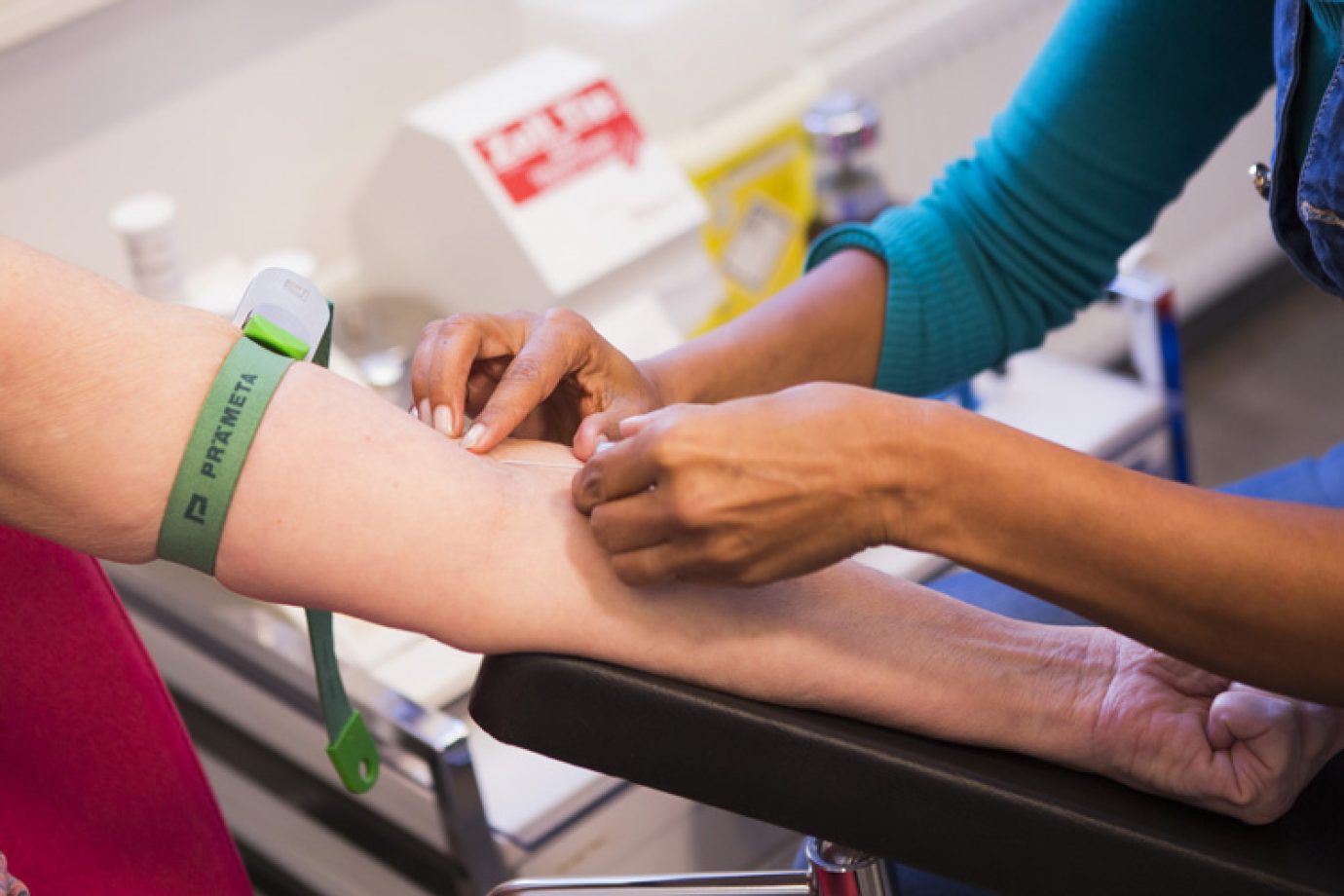From vaccines to biomarkers: results of 12 year research collaboration with University of Cape Town.
Researchers from South Africa, USA, The Netherlands and elsewhere have identified genes that can predict which persons infected with tuberculosis (TB) have a higher risk of developing TB disease. Not everybody who is infected with the Mycobacterium Tuberculosis Bacillus (MTB) will fall ill with TB. This new discovery is bringing scientists closer to understanding what determines who willget the disease. The sooner someone’s risk of TB disease is determined with blood biomarkers that prospectively predict progression to disease, the earlier treatment can be initiated. With early treatment the patient recovers faster and the risk of transmission to his or her household members is reduced.
Scientists from the South African Tuberculosis Vaccine Initiative (SATVI, University of Cape Town) in South Africa, assisted by researchers from KNCV Tuberculosis Foundation, conducted a four-year long cohort study of six thousand school-going adolescents in the Worcester area, South Africa, who were at risk of developing TB disease. When comparing the blood samples of 46 young people who developed the disease and 107 others who were infected with the MTB bacillus but who did not develop TB, the scientists discovered sixteen genes that were more active in the group of teenagers that did develop the disease compared to the groups who were infected with the MTB bacillus but who did not fall ill.
Dr. Suzanne Verver, Senior Epidemiologist at KNCV Tuberculosis Foundation, who assisted in designing this adolescent cohort study, sees great potential in the use of this testing method:
“Has this been done before? No, not as a predictive study; until now the research into biomarkers for TB has been cross-sectional and/or did not use a validation set.
The findings are encouraging: Results may lead to new diagnostic methods. We hope that with this information we will be able to develop a reliable test that can predict which infected people will develop TB. This will help us to decide who needs preventive treatment. We can also use this information to help us to assess the disease’s response to drug therapy, and to make a better selection when enrolling people into trials for new TB vaccines and drugs”.
There needs to be further study to understand the mechanism better: the sixteen genes were found in two thirds of the infected people who developed TB disease. Twenty percent of the people who did not develop the disease also carried the genes. Also, the shorter the time the blood was taken before the disease developed, the higher the reliability of the test.”
The adolescent cohort study was part of a wider series of studies which also involved researchers from Leiden University Medical Center in the Netherlands. They helped to conduct a multi-country study that focused on household contacts of TB patients. In the two studies together, the whole blood RNA sequencing data analysis prospectively identified people at risk of developing active TB in very different populations.
Results of 12 year research collaboration with University of Cape Town.
Dr. Verver is also very enthusiastic about the broad collaborative effort: “This is a huge effort, combining data from so many studies, which has involved the input of many people and institutes.”
KNCV has a long history of working with SATVI, dating back to 2003 when KNCV was asked to help with protocol development for vaccine trial sites for phase 3 vaccine trials. The protocol development started in 2003 and the enrollment took place from 2005-2007, with follow-up that lasted until 2009. Thereafter many lessons have been learned and papers have been published on these data.
The information collected was analyzed, with added data from other studies.
“The data these blood samples give us are a gold mine”, says Dr. Verver. The significance of this groundbreaking research lies not only in identifying high risk populations but also in understanding the immune response to TB.
TB is the world’s deadliest infectious disease. More than two billion people are infected with the TB bacterium. In 2014 1.5 million people died from TB, that is 4 thousand people each day. With the right antibiotics regimen the disease is usually fully treatable.
The Lancet: A blood RNA signature for tuberculosis disease risk: a prospective cohort study

